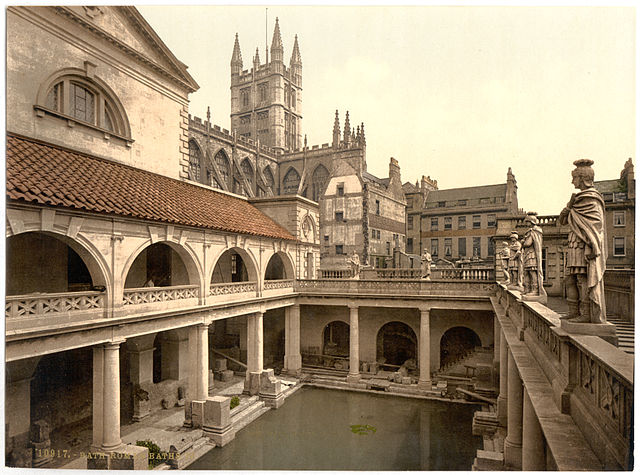In the localised Celtic polytheism practised in Great Britain, Sulis was a deity worshiped at the thermal spring of Bath. She was worshiped by the Romano-British as Sulis Minerva, whose votive objects and inscribed lead tablets suggest that she was conceived of both as a nourishing, life-giving mother goddess and as an effective agent of curses invoked by her votaries.
Gilt bronze head from the cult statue of Sulis Minerva from the Temple at Bath, found in Stall Street in 1727 and now displayed at the Roman Baths (Bath).
An overhead view of the Great Bath of the Roman Baths at Bath
Latin epitaph of Gaius Calpurnius, a priest of Sulis at Bath, who died at the age of 75 and was commemorated by his wife, a freedwoman
Altar from the Hot Bath, which reads "To the goddess Sulis Minerva Sulinus, son of Maturus, willingly and deservedly fulfilled his vow."
Bath is a city in the ceremonial county of Somerset, England, known for and named after its Roman-built baths. At the 2021 Census, the population was 94,092. Bath is in the valley of the River Avon, 97 miles (156 km) west of London and 11 miles (18 km) southeast of Bristol. The city became a UNESCO World Heritage Site in 1987, and was later added to the transnational World Heritage Site known as the "Great Spa Towns of Europe" in 2021. Bath is also the largest city and settlement in Somerset.
Pulteney Bridge
Skyline of Bath city centre with Bath Abbey
19th-century photochrom of the Great Bath at the Roman Baths. The entire structure above the level of the pillar bases is a later construction and was not a feature of the building in Roman days.
Bath Abbey








